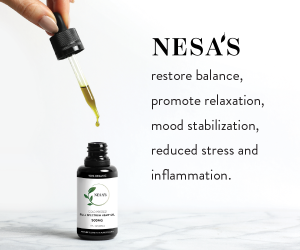6 Powerful Benefits of Meditation
6 Powerful Benefits of Meditation: Meditate Every Day to Live Life to Its Fullest
Overview

Meditation refers to a mindful breathing exercise that tries to consciously control and direct the thought at a fixed focal point. There are many who believe that the ultimate aim of meditation is to exercise complete control over the self and create space for self-awareness. This is done by clearing the mind of all distractions and negative emotions and then observing your inner thoughts without any judgment. Conscious deep breathing is used as a method to bring focus.
The science behind meditation – how does meditation improve your mental wellbeing?
When our brain perceives a threat or stressful situation, the sympathetic nervous system activates the fight or flight response. Our mind goes into highly alert mode, our heart rate is increased, energy levels are elevated, and we breathe rapidly. After we have dealt with the situation, the parasympathetic nervous system comes into play. Ideally, it should undo its sympathetic counterpart and bring the mind to a state of calm – as soon as you are out of a stressful situation. Unfortunately, this does not always happen.
The continuous hustle of daily life, constantly running on deadlines, relationship problems, global pandemic, and poor eating habits can weaken the control of the parasympathetic nervous system. As a result, our ability to relax weakens over time. Think of your parasympathetic side as a reboot system that brings you back to your original state of composure.
What Is Meditation
Regardless of popular belief, the practice of meditation is actually not so much about emptying the mind but rather, it is about focusing on one particular thought
Meditation is essentially a practice of activating the parasympathetic nervous system, also known as the rest and digest system. Studies have shown that regular practice of mindful meditation improves your stress response mechanism and strengthens the control of the autonomic nervous system.
The benefits of meditation are not temporary. Various studies using brain imaging techniques have shown that meditation helps rewire the brain and improve its overall adaptability to physical, mental, emotional, and environmental stress. Moreover, this simple relaxation practice has been shown to improve blood flow to the brain, increase the grey matter density, reduce inflammation, manage pain, and support immune function.
Health benefits of meditation
1. Lowers stress levels
Managing chronic stress is the chief motivation behind many people practicing meditation. When you meditate, you activate the rest-and-digest part of your brain. Research has shown that taking slow and deep breaths while focusing your mind on one object reduces the production of stress hormones and lowers your heart rate. A 2018 study found meditation programs reduce feelings of psycho-emotional stress, anger, fatigue, and confusion in participants. Participants also reported higher levels of wakefulness and better quality of sleep during the program.
2. Promotes sleep quality
This one goes without saying, as stress and poor sleep are partners in crime – they go hand in hand. Stress is well-known to cause insomnia and sleep disturbances, and lack of adequate sleep can increase cortisol levels – thus trapping you firmly in a vicious cycle. While relaxation practices may help, the way meditation improves sleep is far more effective and deep-rooted than any other practice.
Research suggests that meditation may improve the functioning of the parasympathetic nervous system by altering various physiological functions in a similar way to what happens before sleep. Decreased heart rate and blood pressure, slow and regular breathing, enhanced levels of melatonin (sleep hormone), and reduced metabolic rate are some changes that our body naturally goes through during the early stages of sleep. Meditation brings about similar changes in the body and mind, which may help improve both the duration and quality of sleep.
3. Promotes emotional stability
We live in such a fast-paced world that there is no time to wait and think. When you are constantly dealing with all kinds of physical and emotional challenges, on a personal as well as social level, it can be hard to maintain serenity. Meditation is not only spiritually grounding, but it also comes with so many side benefits that altogether contribute to enriching your inner life.

4. Improves concentration
A wandering, distracted mind affects productivity and increases work-related stress. Meditation not only improves concentration but increases the attention span, too. In a 2010 study, participants who practiced daily meditation for 4 days exhibited a marked improvement in attention span, working memory, visuospatial processing, and executive function. In another 2018 study, even a brief period (10 minutes) of meditation practice was found to improve cognitive function in novice practitioners.
5. Helps rebuild grey matter
In one study that used brain imaging techniques, researchers found that an 8-week program with mindful meditation increased the grey matter density in the hippocampus region of the brain – the region associated with memory, learning, and empathy. Grey matter is associated with conscious decision-making, thinking, and analyzing skills. The study also indicated a greater blood flow to the cerebral cortex area, which helps in better cognition and concentration.
6. Inculcates a habit of mindfulness
Mindfulness is the simple art of enjoying the present moment and gathering a full picture of what you are experiencing. When you meditate, you are doing exactly that. You direct all your five senses on a single task of breathing. Practicing this every morning trains your mind to repeat the same procedure in everything you do.
How to start meditating: basic tips for beginners
Prepare
Sit down in a comfortable position on a comfortable surface, preferably on a firm mat. Make sure the surrounding is either calm or distraction-free. Set up a timer for 10 minutes. Once you start enjoying the practice, you can increase the time to 20-25 minutes or however long you want.
Simply breathe
Do not try to control your thoughts at this point. In the beginning, it’s very important to learn how to turn a natural, involuntary act of breathing into a conscious act. Focus on your breathing – feel the air in your nostrils and try to keep it slow and deep. If your mind wanders, return your focus to breathing again. With time and consistent practice, you will notice fewer wanderings and more focus.
Try essential oils
Essential oils can be helpful for beginners who often struggle with focus. Balancing oils like patchouli, clary sage, pine, basil, frankincense, myrrh, and sandalwood are considered great for centering your mind on a single object, in this case – breath. The more you like the smell, the better it will help you. Diffuse 3-4 drops in the room or apply a diluted version on the forehead, neck, and inner wrists.
Final thoughts
While meditation involves breath control, it is much more than a breathing exercise. It is the easiest and most effective way to take all-around care of yourself. In other words, if you want to stay physically strong, mentally resilient, emotionally composed, and spiritually grounded, there is nothing better than breathing your lungs out and then observing your breath.
Remember, you don’t necessarily need an hour of meditation time but just 10-20 minutes a day provides great health benefits. You can even consider this practice twice a day – once in the early morning for 10 minutes and at night before bed for 10 minutes. Give it a try and let us know your experience!
To Your Health!
References
https://pubmed.ncbi.nlm.nih.gov/29936408/
https://jamanetwork.com/journals/jamainternalmedicine/fullarticle/2110998
https://www.ncbi.nlm.nih.gov/pmc/articles/PMC3328970/
https://www.sciencedirect.com/science/article/abs/pii/S1747938X15000676
https://news.harvard.edu/gazette/story/2011/01/eight-weeks-to-a-better-brain/
https://www.ncbi.nlm.nih.gov/pmc/articles/PMC6088366/
https://www.sciencedirect.com/science/article/abs/pii/S1053810010000681





























1 Comment
It’s nice that you talked about how taking slow and deep breaths while focusing your mind on one object could reduce the production of stress hormones and lowers your heart rate. I feel a lot of stress from my work nowadays and I think I need to find some ways to unwind. I want to be able to relax easier so I should probably try meditation for better living.